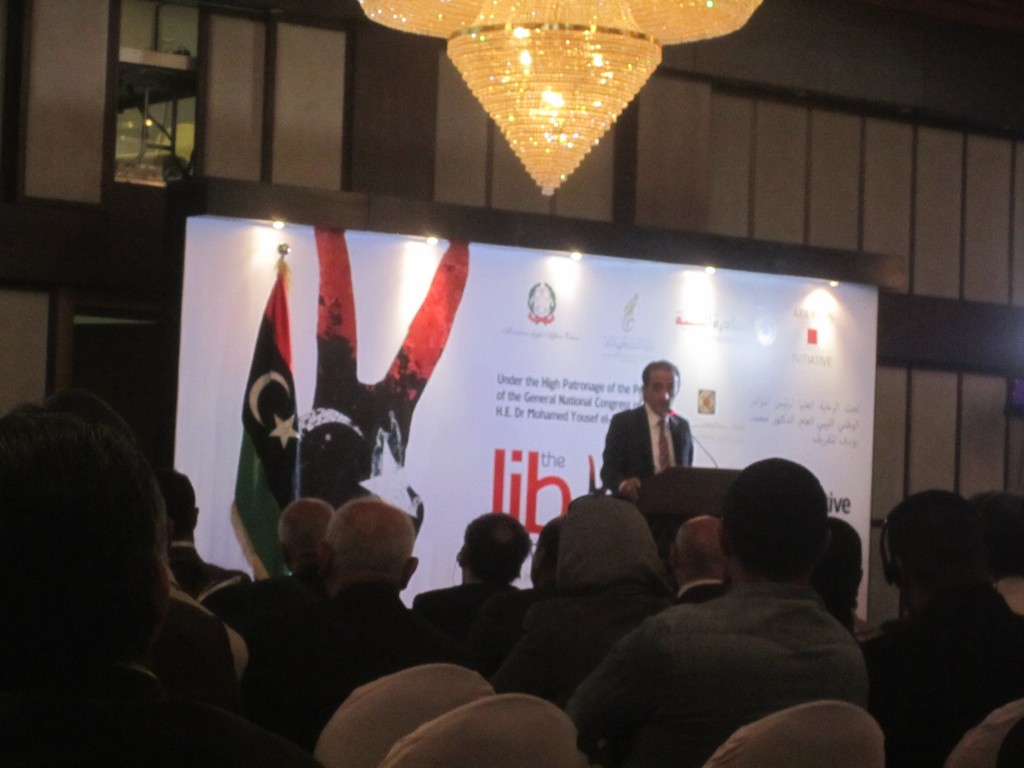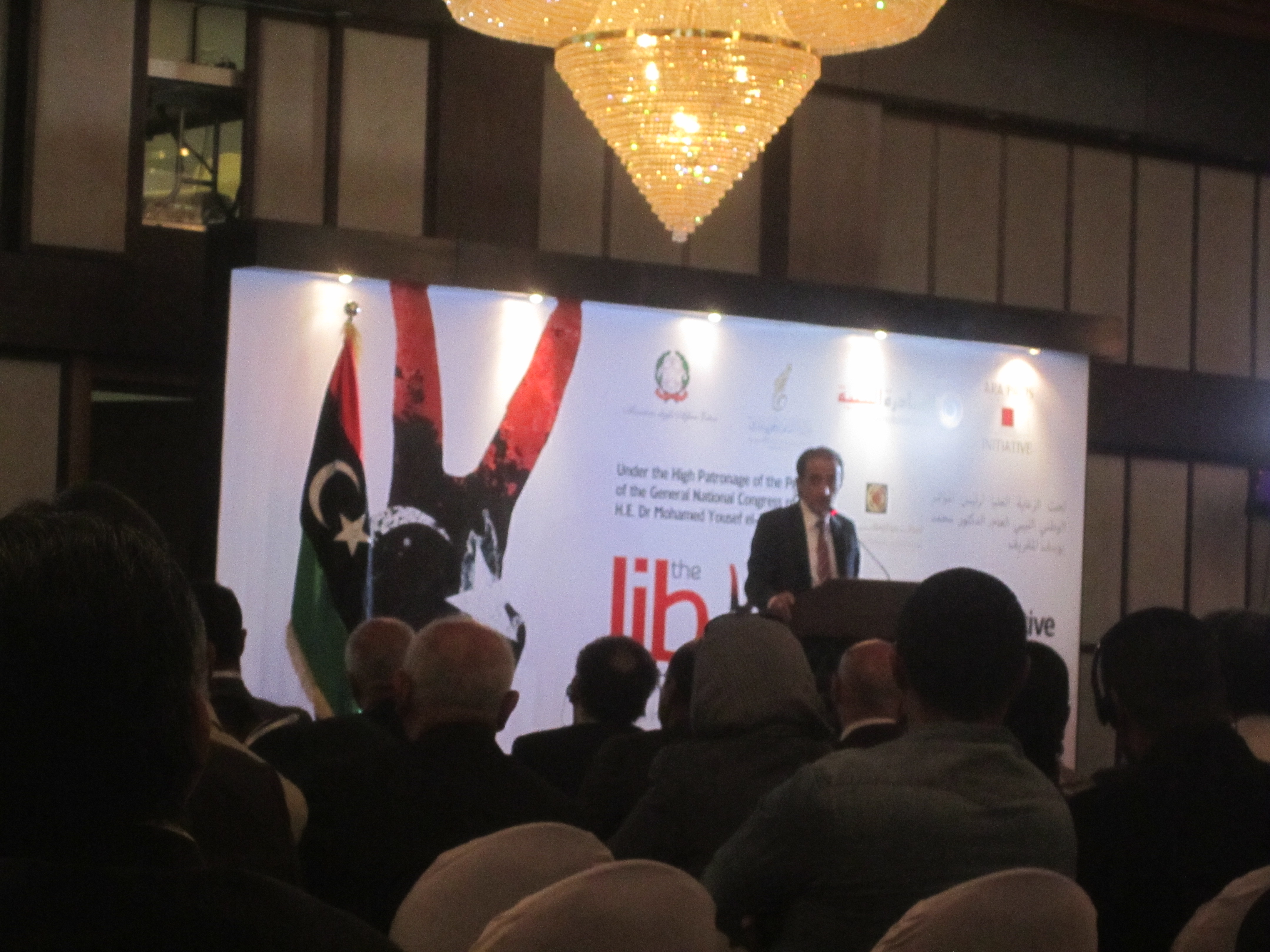
Tripoli, 4 May 2013:
The Libya Initiative (Al-Mubadara Libya) was launched today at the Radisson Blu Mahari, with high-level ministers joining peace activists from around the world.
Vice-President of the General National Congress Juma Ateega praised the “positive action” of the Libya Initiative, which aims to promote social healing and a political culture of social justice, forgiveness and reconciliation.
“With weapons there will never be any dialogue,” said Ateega, in an oblique reference to the militiamen who have, during the last week, blockaded the ministries of Foreign Affairs and Justice, forcing them to close.
“He who takes up arms steps out of the democracy process,” Ateega said, “but I hope that love for Libya will bring them back onto the right track.” He added that peaceful dialogue was the way to achieve reconciliation.
The event included several personal stories of suffering, experienced both during the years of the old regime and the revolution. Even the Minister of Culture, Habib Al-Amin, shared some of his own experiences.
“It is difficult to talk about love and peace when many have suffered huge loss and bereavement,” he said.
“We have lost a lot and we don’t want to continue losing,” Al-Amin said: “New Libya has to be achieve transitional justice, the future of the country should be built on justice.”
Nobel Peace Laureate Leymah Gbowee, who set up the Liberian Mass Action for Peace organisation, mobilising Christian and Muslim women in Liberia to help bring peace to the country, gave the keynote address. She pointed out the irony of addressing her speech, entitled ‘conflict transformation and social healing: the role of women,’ to an audience where 92 percent were men.
She called for any conversations about dialogue to include discussions of rape and abuse. “Laws must be enacted that include protection for women and enable them to talk about their pain,” Gbowee said. “The government should ensure that women are protected.”
The Libya Initiative is an action plan implemented by the Italian NGO Ara Pacis in partnership with the Libyan NGO Al Mubadara Libya Assalam. It is supported and funded by the Italian Ministry of Foreign Affairs. [/restrict]







